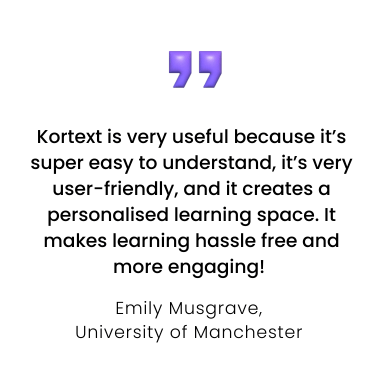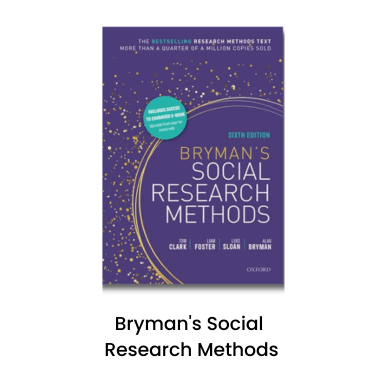Written by Nyarobi and reviewed by our team. Nyarobi is a student ambassador for Kortext at Aston University.
When I first arrived at Aston University, I did what most freshers do. I went to the Societies Fair, collected about seventeen different flyers, took a free pen from every stall, and promptly felt overwhelmed by the sheer number of options. Over 130 societies? How was I supposed to choose?
Spoiler alert: you don’t have to choose just one. Realising this has made my experience so much more enjoyable.
Why I joined (way too many) societies
I’m currently involved in Aston Law Society, the UN Society, Girls Human Rights Society, and the Afro Caribbean Society (ACS). On paper, that sounds like I’ve got my life incredibly together and have mastered time management. The reality is, I just really didn’t want to miss out on anything, and I’m so glad I didn’t limit myself.
Each society offers something completely different. The Law Society is brilliant for understanding my course better and connecting with people on the same academic journey.
We have a Law Pizza Party coming up, and the Law Ball is later in the year. These events make the sometimes-heavy workload of law feel more manageable when you’re going through it with people who get it.
The UN Society and Girls Human Rights Society feed my interest in global issues and advocacy. These aren’t directly related to my course, but they remind me why I chose law in the first place. There’s something powerful about being in a room full of people who care about making a difference, debating ideas, and challenging each other’s perspectives.
Then there’s ACS, which has become my social anchor. Whether it’s the upcoming Toca Social event, games nights, or girls’ nights, it’s where I feel most at home.
The cultural connection, the music, the food, the inside jokes… It’s the society that reminds me to have fun and not take everything so seriously.
The hidden benefits nobody tells you about
Here’s what they don’t mention at the Societies Fair: joining societies isn’t just about the activities themselves. It’s about finding your people in a sea of 15,000+ students.
In lectures, everyone’s rushing in and out. In your accommodation, you’re stuck with whoever got randomly assigned to your floor. But in societies? You’re surrounded by people who chose to be there for the same reasons you did. That makes all the difference.
I’ve met some of my closest friends through societies. These are people I never would have crossed paths with otherwise. We’re on different courses, from different cities, with completely different daily schedules. But we show up to the same events, share the same interests, and suddenly you’ve got a group chat that’s constantly buzzing with plans.
Societies also give you something to look forward to when deadlines are piling up and lectures are draining. Knowing there’s a game night or a pizza party on the horizon makes the Monday 9 am slightly more bearable.
It’s not about being committed, it’s about being involved
One thing that really helped me was realising I didn’t have to have a committee role to be involved. I’m not a president, treasurer, or events coordinator in any of my societies, and that’s completely fine. I show up when I can, engage with what interests me, and skip events when I’m genuinely swamped.
Some weeks, I’m at multiple events. Other weeks, I’m buried in coursework and barely respond to the group chats. The beauty of societies is that they’re flexible. You can dip in and out as your schedule allows, and nobody’s keeping score.

Beyond my societies: What else Aston offers
The thing about Aston is there genuinely is something for everyone. Into sports? There are clubs for everything from football to ultimate frisbee. Creative? There’s The Arts and Crafts Society, Creative Writing, and Photography. Academic? Societies exist for practically every course and subject area.
The range is honestly ridiculous. I’ve got friends in the Book Club Society who meet weekly to discuss whatever they’re reading. Others are in the Cheerleading Club, Boxing Club, or the Bhangra Club.
There’s even a Canon Newspaper for aspiring journalists, and societies focused on social causes like Amnesty International and Beyond Religion.
If you’ve got a niche interest, chances are there’s already a society for it. And if there isn’t? You can literally start your own; all you have to do is fill out the form on the university’s SU website and have ten friends who are interested in joining your society. That’s the beauty of Aston. The student-led culture means if you’re passionate about something, you can make space for it.
My advice? Just sign up
If you’re on the fence about joining societies, here’s my honest advice: just do it. Sign up for anything that sounds remotely interesting. You can always not go to events, but you can’t go to events for societies you haven’t joined.
Don’t overthink it. Don’t worry about whether you’ll have time or if you’ll be “committed enough”. University is about exploring, trying new things, and figuring out what matters to you. Societies are one of the best (and cheapest) ways to do that.
The membership fee is usually around a fiver, which is less than a meal deal. For that, you get access to events, meet loads of new people, and have something to put on your CV that shows you’re more than just your degree. It’s genuinely one of the best investments you’ll make at uni.
Whether you’re into law, human rights, sports, crafts, or anything in between, get yourself on the students’ union website (or simply Google Aston Uni societies, and it’ll be the first link), then sign up and see what sticks. Your tribe is out there. You must find them.
And trust me, when you do, everything clicks into place.



















